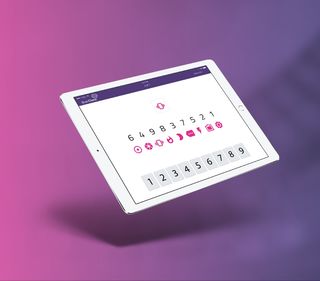Memory
Could an App Diagnose Your Memory Problems?
A new app attempts to ease the burden of finding a neuropsychologist.
Posted December 2, 2017
A new tablet-based software called BrainCheck is attempting to bring neuropsychological assessment to the comfort of your own home. How? By merging the fields of software programming and neuropsychology, founders David Eagleman (a neuroscientist by training) and Yael Katz (a biologist with computer science training) created an iPad application which, they claim, is able to “diagnose” everything from traumatic brain injury to memory problems associated with early onset dementia and Alzheimer’s disease. While the fields of psychotherapy and neurological assessment have been slow to evolve with technology, due to federal regulations about keeping patient records confidential and professional rules about maintaining test security, BrainCheck is turning the traditional rules of neurological assessment on their head by making their assessments available directly to consumers in their own homes, for a price.

Traditionally, patients tend to seek neuropsychological assessment once there is already a clear problem. Individuals may not know what the problem is, but they have observed enough “out-of-the-norm” behaviors, either in themselves or in a loved one, to know that something is going on. Next, they embark on the challenge of finding a neuropsychologist, either in private practice or through an academic medical hospital, who will be able to administer a series of tests to the patient, which may take anywhere between four and ten hours. Finally, the patient returns home and anxiously waits for the neuropsychologist to score the data obtained from the extensive assessment session and write an “integrated” report — or, rather, a report which considers multiple factors in the service of making an accurate diagnosis (e.g., patient history, family history, cognitive strengths and weaknesses, performance on the tests, interpretations of these results, and recommendations).
Because of the costly, time-consuming, and exhaustive nature of obtaining credible assessments, BrainCheck attempts to “bring neurocognitive testing into the 21st century” by giving patients a window into their cognitive functioning before it may be too late to do anything. Rather than simply translating reliable and well-validated tests into their software program, the application circumvents copyright laws by using open-source cognitive tests as part of their brief screening tool. Such cognitive tests are already readily available on the internet, but the average individual may not know which tests are good for testing what, and what scores may indicate a problem which warrants further clinical attention. The app attempts to solve this problem by pooling these pre-existing, quick testing resources into a usable screening tool, which provides an output of both normative data (results of thousands of individuals without any cognitive impairment) and that of clinical samples (results of individuals with specific cognitive problems, along with how they performed on each test compared to the user).

One component of the app’s claim to fame is that it only takes five minutes (less than the time it takes to order a cup of coffee from Starbucks). The app uses six well-known assessments among psychologists: the Flanker Task, which measures attention; the Digit Symbol Substitution Task, which measures general cognitive performance; the Stroop Task, which assesses reaction time during a cognitive interference (a distractor); the Trail Making Test, a task of visual attention and task switching; an Immediate and Delayed Recall Task, which measures short-term memory recall; and a balance and coordination task.
But before the naysayers shoot down the idea of very brief, in-home assessments as blasphemous to the field of neuropsychology, traditionally known for its precision, perhaps it may be worthwhile to note that BrainCheck recently received $3 million in seed funding as a start-up from investors at major academic medical hospitals throughout the country, including the Texas Medical Center accelerator. Additionally, the software is being implemented as common practice for screening sports-related concussions, which may lead to traumatic brain injuries among major college sports teams, and has developed modifications to the application which more specifically test for dementia. To top off its credibility, the app has had several articles published in peer-reviewed scientific journals attesting to its reliability and validity in making accurate diagnoses among its intended user base (those with suspected traumatic brain injuries or memory problems).
At a research conference last month in which the author of this article caught up with BrainCheck’s CEO, Dr. Katz eased concerns about the intentions of the digital screener:
It’s certainly not going to replace neuropsychologists and psychologists, but it is meant to fill in the gaps where they might not be able to reach patients, or reach them early enough, and the data says we’re doing a pretty good job at that so far.
But can a 5-minute app really accomplish what a 10-hour assessment can? Is this move toward more integrated, accessible, digital practice functional? Only time will tell...
References
Yang, S., Flores, B., Magal, R., Harris, K., Gross, J., Ewbank, A., Davenport, S., Ormachea, P., Nasser, W., Le, W., Peacock, W. F., Katz, Y, & Eagleman, D. (2017). Diagnostic accuracy of tablet-based software for the detection of concussion. PLOS One.


